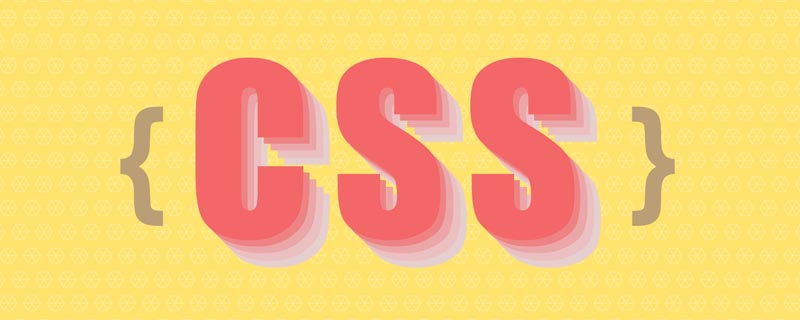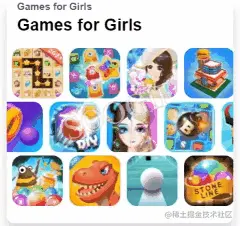 Web Front-end
Web Front-end
 CSS Tutorial
CSS Tutorial
 Take a look at how to achieve the dynamic effect of the revolving door of pictures using CSS?
Take a look at how to achieve the dynamic effect of the revolving door of pictures using CSS?
Take a look at how to achieve the dynamic effect of the revolving door of pictures using CSS?
How to realize the dynamic effect of picture revolving lantern using CSS? The following article will introduce to you how to use css3 animation transform to achieve the revolving image effect. I hope it will be helpful to you!

#Because the project needs to achieve a revolving door effect of a picture. After checking most of the common Vue component libraries, I rarely saw such components, so I manually implemented the revolving door effect based on CSS3 animation. Two solutions immediately come to mind, one is to use a timer, scrollLeft or modify the left attribute value in the position, and the other is to use CSS3's transform and animation.
Choose to use animation to implement it. Since the animation implemented by js runs on the CPU and the animation of css3 runs on the GPU, the rendering cost of css3 is low. Finally, we decided to use css3 to implement this type of operation.
Using scrollLeft
In the beginning, scrollLeft overflow was used to achieve the effect, and a timer was used to trigger it, which would lead to redrawing and reflow every time. (ps: If you need to improve performance, you can use requestAnimationFrame instead of timer triggering. The main advantage is that requestAnimationFrame will concentrate all DOM operations in each frame and complete it in one redraw or reflow, and redraw or reflow. The reflow time interval closely follows the refresh frequency of the browser. Generally speaking, this frequency is 60 frames per second)
(Changing scrollLeft has the same effect as left) Core code:
function toScrollLeft(){
// 如果容器的宽度大于滚动条距离,则重复滚动
if(divWidth > box.scrollLeft){
box.scrollLeft++
setTimeout('toScrollLeft()', 18);
}
else{
// 滚动结束,从新开始
box.scrollLeft=0;
setTimeout('toScrollLeft()', 18);
}
}Use css3 animation transform
Use css3 animation to implement revolving lantern, use css variables to dynamically set the translateX offset of each state transform, and the most critical animation, some of the effects are as follows Made gif.

1. Preliminarily set the html layout and set up a div container
<div class="box" >
<ul >
<li v-for="(src,i) in cap " :key="i">
<img src="/static/imghw/default1.png" data-src="src" class="lazy" style="max-width:90%" height="90px" : / alt="Take a look at how to achieve the dynamic effect of the revolving door of pictures using CSS?" >
</li>
</ul>
</div>2. Set the corresponding style
.box{
display: flex;
overflow: hidden;
flex-direction: column;
border-radius:12px;
width: 100%;
height: 100%;
background-color:#fff;
}
ul{
display: flex;
}3. Finally, set the binding object to the style. The style of the .box element mainly uses css variables, and then uses specific values to dynamically set the effect of each state of the animation. The key code uses animation: cap.length*8 's move infinite linear; which will produce the effect of infinite repeated movement.
ps: This is the main overall operation point, other details are omitted
<div class="box" :style="{
'--card-ul-width-start':-30+'px',
'--card-ul-width-middle1':-cap.length*30+'px',
'--card-ul-width-middle2':-cap.length*60+'px',
'--card-ul-width-end':-cap.length*90+'px'
}">
<ul :style="{'-webkit-animation':cap.length*8+ 's move infinite linear;'}">
<li></li>
</ul>
</div>data(){
cap:new Array(6).fill('https://res.minigame.vip/gc-assets/fruit-master/fruit-master_icon.png')
}@keyframes move {
0%{
transform:translateX(var(--card-ul-width-start))
}
30%{
transform:translateX(var(--card-ul-width-middle1))
}
70%{
transform:translateX(var(--card-ul-width-middle2))
}
100%{
transform:translateX(var(--card-ul-width-end))
}
}(Learning video sharing: css video tutorial)
The above is the detailed content of Take a look at how to achieve the dynamic effect of the revolving door of pictures using CSS?. For more information, please follow other related articles on the PHP Chinese website!

Hot AI Tools

Undresser.AI Undress
AI-powered app for creating realistic nude photos

AI Clothes Remover
Online AI tool for removing clothes from photos.

Undress AI Tool
Undress images for free

Clothoff.io
AI clothes remover

AI Hentai Generator
Generate AI Hentai for free.

Hot Article

Hot Tools

Notepad++7.3.1
Easy-to-use and free code editor

SublimeText3 Chinese version
Chinese version, very easy to use

Zend Studio 13.0.1
Powerful PHP integrated development environment

Dreamweaver CS6
Visual web development tools

SublimeText3 Mac version
God-level code editing software (SublimeText3)

Hot Topics
 1385
1385
 52
52
 How to use bootstrap in vue
Apr 07, 2025 pm 11:33 PM
How to use bootstrap in vue
Apr 07, 2025 pm 11:33 PM
Using Bootstrap in Vue.js is divided into five steps: Install Bootstrap. Import Bootstrap in main.js. Use the Bootstrap component directly in the template. Optional: Custom style. Optional: Use plug-ins.
 The Roles of HTML, CSS, and JavaScript: Core Responsibilities
Apr 08, 2025 pm 07:05 PM
The Roles of HTML, CSS, and JavaScript: Core Responsibilities
Apr 08, 2025 pm 07:05 PM
HTML defines the web structure, CSS is responsible for style and layout, and JavaScript gives dynamic interaction. The three perform their duties in web development and jointly build a colorful website.
 How to write split lines on bootstrap
Apr 07, 2025 pm 03:12 PM
How to write split lines on bootstrap
Apr 07, 2025 pm 03:12 PM
There are two ways to create a Bootstrap split line: using the tag, which creates a horizontal split line. Use the CSS border property to create custom style split lines.
 Understanding HTML, CSS, and JavaScript: A Beginner's Guide
Apr 12, 2025 am 12:02 AM
Understanding HTML, CSS, and JavaScript: A Beginner's Guide
Apr 12, 2025 am 12:02 AM
WebdevelopmentreliesonHTML,CSS,andJavaScript:1)HTMLstructurescontent,2)CSSstylesit,and3)JavaScriptaddsinteractivity,formingthebasisofmodernwebexperiences.
 How to resize bootstrap
Apr 07, 2025 pm 03:18 PM
How to resize bootstrap
Apr 07, 2025 pm 03:18 PM
To adjust the size of elements in Bootstrap, you can use the dimension class, which includes: adjusting width: .col-, .w-, .mw-adjust height: .h-, .min-h-, .max-h-
 How to set up the framework for bootstrap
Apr 07, 2025 pm 03:27 PM
How to set up the framework for bootstrap
Apr 07, 2025 pm 03:27 PM
To set up the Bootstrap framework, you need to follow these steps: 1. Reference the Bootstrap file via CDN; 2. Download and host the file on your own server; 3. Include the Bootstrap file in HTML; 4. Compile Sass/Less as needed; 5. Import a custom file (optional). Once setup is complete, you can use Bootstrap's grid systems, components, and styles to create responsive websites and applications.
 How to insert pictures on bootstrap
Apr 07, 2025 pm 03:30 PM
How to insert pictures on bootstrap
Apr 07, 2025 pm 03:30 PM
There are several ways to insert images in Bootstrap: insert images directly, using the HTML img tag. With the Bootstrap image component, you can provide responsive images and more styles. Set the image size, use the img-fluid class to make the image adaptable. Set the border, using the img-bordered class. Set the rounded corners and use the img-rounded class. Set the shadow, use the shadow class. Resize and position the image, using CSS style. Using the background image, use the background-image CSS property.
 How to use bootstrap button
Apr 07, 2025 pm 03:09 PM
How to use bootstrap button
Apr 07, 2025 pm 03:09 PM
How to use the Bootstrap button? Introduce Bootstrap CSS to create button elements and add Bootstrap button class to add button text



